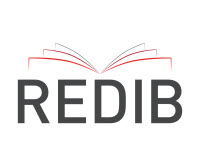Valores japoneses y de Asia oriental como visiones del mundo alternativas con una orientación a la pluralidad de significados de la vida en la era informatizada
Resumen
A pesar de la creencia generalizada de que la informatización de nuestro mundo puede mejorar nuestra vida de forma más significativa que la sociedad industrial, está claro que se están enfrentando ahora serios problemas. Entre ellos se ha perdido la comunicación cara a cara como resultado de la penetración de formatos de comunicación de SNS exclusivos, una concentración desmesurada de capital en compañías de alta tecnología debido a la artificialización de los medios de inversión a través del uso de internet y de la inteligencia artificial. Desde la perspectiva del autor, esta clase de crisis refleja la confusión entre ‘Ser por sí mismo (being itself) and ser (beings) como es sugerido por Rafael Capurro o la pérdida de la pluralidad de significados de la vida, en la era de la informatización, debida a lo conocido como determinismo tecnológico. En este trabajo, el autor intenta ofrecer cosmovisiones alternativas para superar la pérdida de la pluralidad de significados, a través del examen de los enfoques éticos y existenciales japoneses, de modo de reflejar la orientación de sus valores latentes en la unidad de significados sugeridos por Kitaro Nishida y otros autores. Parece que Japón es un país interesante en el sentido de que puede enfrentar los serios problemas de entornos informatizados, y al mismo tiempo, utilizar su poder potencial para superar esta situación.
Descargas
Citas
Amino, Y. (1996). Muen-Kugai-Raku: Nihon chûsei no jiyû to heiwa (Muen, Kugai, Raku: Freedom and Peace in Japan’s Medieval Period). Tokyo: Heibonsha.
Capurro, R. (2006). Towards An Ontological Foundation of Information Ethics. Ethics and Information Technology. 8, 4, 175-186. http://www.capurro.de/oxford.html
Capurro, R., Eldred, M., Nagel, D. (2013). Digital Whoness: Identity, Privacy and Freedom in the Cyberworld. Berlin: de Gruyter.
Hashimoto, M. (1975). Ukiyo no sisou (Thought in Ukiyo as transitory world). Tokyo: Koudansya.
Hioki, K. (1993). Higashi ajia no sosiki koudou (People’s behaviors in organization of East Asia). In: Hamaguchi E. (ed.) Nihongata moderu to ha nanika (About the characteristics of Japanese culture and society). Tokyo: Shinyosya, 385-399.
Hyodo, H. (1985). Katarimono jyosetsu (An introduction into storytelling). Tokyo: Yuseido.
Inoue, T. (1977). ‘Seken-tei’ no kouzou (Structure of behaviors, feelings and human relations in Seken). Tokyo: Nihonsyuppankyoukai.
Introna, L. D. (1998). Language and Social Autopoiesis. Cybernetics and Human Knowing, 5, 3, 3-17.
Japan Productivity Center (2019). Report on productivity in Japan.
https://www.jpc-net.jp/research/list/comparison.html
Kaji, N. (2013). Tyuugoku jinn no ronrigaku (The logic of Chinese). Tokyo: Tikumasyobo.
Kimura, B. (1982). Jikan to jiko (Time and self). Tokyo: Tyuuoukouronsya.
Kimura, B. (1988). Aida. Tokyo: Kobundo.
Koschmann, J. V. (1987). The Mito Ideology: Discourse, Reform and Insurrection in Late Tokugawa Japan, 1790-1864. Berkeley and Los Angeles: The University of California Press.
Ministry of Economy, Trade and Industry. (2005). Report on informatization in Japan in 2005. (Access, 1 September, 2020.)
Nakada, M. (2004). The Internet within Seken as old and indigenous world of meaning in Japan. The Interrelationship between Seken, Shakai, and the Internet in Japan. Paper presented at the Ⅳ. ICIE-SYMPOSIUM, p.1-28.
Nakada, M. (2005). Are the Meanings of Japanese Popular Songs Part of Seken-Jinseikan Meanings? Gendaibunka-Koukyouseisaku-ronnsyu, 1, 105-130.
Nakada, M. (2009a). Ethical and critical views on studies on robots and roboethics. Submitted paper to Joint-workshop on Ethics and Robotics by ReGIS, Cybernics and STI-IE (October 3, 2009, University of Tsukuba.)
Nakada, M. (2009b). Blogs and privacy in Seken as a Japanese life-world including indigenous moral norms. A paper submitted to CEPE 09 (Computer Ethics: Philosophical Enquiry) in Corfu, Greece (3 days conference from 27 June to 29 June 2009).p.1-17.
Nakada, M. (2010). Different discussions on roboethics and information ethics based on different cultural contexts (BA). Cultural Attitudes towards Technology and Communication 2010. Murdoch University. p. 300-315.
Nakada, M. (2011a). Japanese views on privacy and robots in Japanese ethical Ba (place). In: Mauger, J. (Ed.) CEPE2011. INSEIT, p. 208-202.
Nakada, M. (2011b). Ethical and critical views on studies on robots and roboethics. In: Decker, M., Gutmann, M. (Eds.) Robo-and Informationethics: Some Fundamentals. Berlin: Lit Verlag. p. 157-186.
Nakada, M. (2012). Robots and Privacy in Japanese, Thai and Chinese cultures: Discussions on Robots and Privacy as Topics of Intercultural Information Ethics in ‘Far East.’ In: Sudweeks, F., Hrachovec, H. and Ess, C. (Eds.) Cultural Attitudes towards Technology and Communication 2012. Murdoch: Murdoch University. p. 200-215.
Nakamura, Y. (1997). Kansei no kakusei (Newly awareness of meanings of senses). Tokyo: Iwanami.
Karatani, K. (2001). Senzen no siso (Japanese thought before the World War 2). Tokyo: Kodansya. (first edition 1994).
Nishida, K. (1950). Zen no kenkyuu (An inquiry into the good). Tokyo: Iwanami (original published in 1911).
Nishida, K. (1987). Basho (Place). In: Testugakuronsyuu, N. K. Tokyo: Iwanami (originally published in 1926).
Onda, M. (2013). Mutual Help Networks and Social Transformation in Japan. American Journal of Economics and Sociology, 72, 3, 531-564.
Pew Research Center (2013). Pew Global Attitudes Project Report May 23, 2013. https://www.jpc-net.jp/research/list/comparison.html
Sakuta, K. (1972). Kati no Shakaigaku (Sociology of values). Tokyo: Iwanami.
Shimizu, I. (1970). Nihonjin no sizenkan(Japanese views on nature). Ningen wo kanngaeru (Thinking about human beings). Tokyo: Bungeisyunjyuu. p. 146-185.
Turner, V. (1969). The Forest of Symbols: Aspects of Ndembu Ritual. Ithaca. NY: Cornell University.
Turner, V. (1974). Dramas, Fields, and Metaphors: Symbolic Action in Human Society. NY: Cornell University Press.
Yamaguchi, M. (1983). Bunka no shigaku Ⅰ (Poetical Reflections on Culture Ⅰ). Tokyo: Iwanami.
Yasuda, N. (2014). Nihonjin no shintai (Japanese body). Tokyo: Tikumasyobou.
Yoshida, K. (1995). Kou system no bunnpai kouzou (Distribution system of Kou-system). Keizai ronsyuu bessatsu: Tyousa to Kenkyuu. 8, 1-14. (Economic Review, separate volume: Survey and Research). University of Kyoto.
World Economic Forum (2016). Human Capital Report 2016. (Access, 1 September, 2020).
Derechos de autor 2021 Makoto Nakada

Esta obra está bajo licencia internacional Creative Commons Reconocimiento 4.0.







.jpg)




















